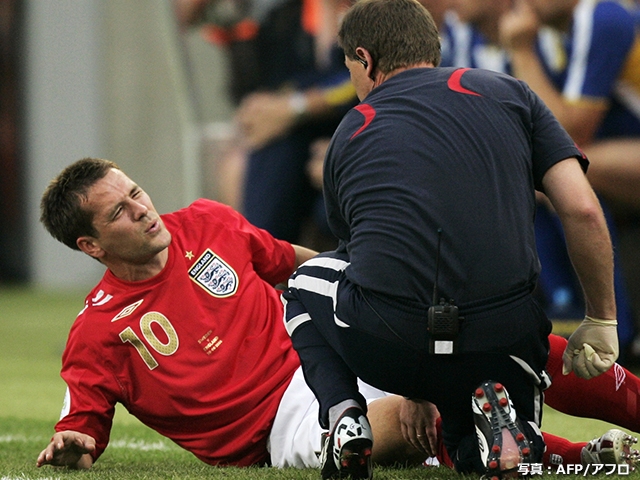NEWS
The Ultimate Sense of Responsibility - Always have respect Vol.145
25 June 2025

The issue of “officiating standards” has been the subject of much discussion in the J. League.
In cooperation with the Technical Committee and the J. League, the Referees Committee of the Japan Football Association (JFA) is working to distinguish more rigorously between fouls and fair challenges, with the aim of making the game more robust and competitive. Even when players go down following fierce collisions, referees are being encouraged to refrain from blowing the whistle so readily and instead allow play to continue, unless the incident clearly constitutes a foul.
In the beginning of the season, many players who had gone to ground would look up at the referee as though to ask, “Surely that was a foul?” However, as the season progresses, we are seeing more and more of them quickly getting back on their feet and moving on to the next play. Some confusion is inevitable during such transitional period, but thanks to the cooperation of teams, players and referees, the league is evolving from one where players would drop to the ground all too readily into a tougher, more resilient one that can compete with other leagues around the globe.
That said, unfortunately, we still occasionally see players who remain on the ground, seemingly in an effort to appeal for a foul. They may well be in pain, but surely they know better than anyone else whether it's a serious injury or not. When the referee stops play to ask, “Are you OK?,” the player finally gets up, only to then protest, “Wasn't that a foul?”
Whenever I witness this kind of behaviour, I’m reminded of an England international from almost 20 years ago. I think back to Michael OWEN’s actions during England’s group stage match against Sweden in Cologne at the 2006 FIFA World Cup Germany™.
It was the third match of Group B. Both teams had already secured their place in the Round of 16, but the winner of this match would top the group. Just 50 seconds after Sweden kicked off, an unexpected incident occurred. Owen received a pass out wide on the left and, as he turned to play the ball back inside to a teammate, he fell awkwardly, despite making no contact with any other player. He was clearly in pain, grabbing his right knee.
But what struck me most wasn’t the fact that Owen had gone down, but it was what he did next. Despite his injury clearly being serious, he immediately rolled over onto all fours and crawled several metres over the touchline to get off the pitch.
Meanwhile, England maintained possession of the ball, and Swiss referee Massimo BUSACCA (who would later become FIFA’s Director of Refereeing) allowed play to continue.
England’s medical staff rushed over immediately and assessed the injury of Owen, who was then carried off on a stretcher. It was later revealed that he had torn the anterior cruciate ligament (ACL) in his right knee, a serious injury that would keep him out of action for ten months.
This happened right below the press box where I was sitting. I found Owen’s behaviour far more captivating than the match itself. I was so astonished that I jotted down in my notebook, “Crawled off by himself.”
In that moment, I felt Owen’s overwhelming sense of responsibility, not wanting to stop an important match because of his own misfortune. Having become accustomed to seeing J. League players roll around on the ground like sulking children, I was profoundly impressed by his actions. I couldn’t help but think, “This is extraordinary.”
By the age of 18, Owen had already made a name for himself on the world stage when he played in the 1998 FIFA World Cup France™, earning him the nickname “Wonder Boy” thanks to his explosive pace and fearless style of play.
But it wasn't just his outstanding record — 89 caps and 40 goals for England — that made him a true star. It was the attitude he displayed on that day in Cologne. His ultimate sense of responsibility to protect the integrity of football, the game he had devoted his life to. His actions embodied his wish to ensure the game remained something valuable and enjoyable for everyone to watch. That’s when I understood what made him truly exceptional.
Written by OSUMI Yoshiyuki (Football Journalist)
*This article was originally posted on the Japan Football Association Newsletter, “JFAnews,” May 2025 edition.
Japan Football Association Newsletter “JFAnews”
The Japan Football Association Newsletter “JFAnews” contains all the information on the Japan National Team, events hosted by JFA, tournament results, and team information throughout the nation. The official monthly magazine is a must read for coaches, referees, and all members of the football family.
For information on the newest edition (Japanese website)
Related News
-
Respect and fair play
2025/05/23
Complacency is a sign of a lack of respect - Always have respect Vol.144

-
Respect and fair play
2025/04/24
The man who was saddened by his goal - Always have respect Vol.143

-
Respect and fair play
2025/03/25
An unexpected handshake - Always have respect Vol.142

-
Respect and fair play
2025/02/26
The words of a referee - Always have respect Vol.141

-
Respect and fair play
2025/01/24
Treasured legacies of the Emperor's Cup finals - Always have respect Vol.140

Latest News
-
National Teams
2026/02/19
U-20 Japan Women's National Team short-listed squad & schedule - Training Camp (2/23-26@JFA YUME Field)

-
National Teams
2026/02/19
Japan Beach Soccer National Team short-listed squad & schedule - Training Camp (2/26-3/2@Okinawa)

-
National Teams
2026/02/12
U-17 Japan National Team squad & schedule - Prayer for Peace; Hiroshima International Youth Soccer Games 2025 (2/17-23@Hiroshima)

-
National Teams
2026/02/12
Nadeshiko Japan (Japan Women's National Team) squad & schedule - AFC Women's Asian Cup™ Australia 2026 (2/23-3/22)

-
National Teams
2026/02/09
U-16 Japan Women's National Team short-listed squad & schedule - Training Camp (2/16-19@Okayama)



